THE LAW AND THE LAWYERS
‘When I became Commissioner I had no intention of surrendering the freedom to express myself publicly on matters within my province if I thought that the interests of the Force or the Public required it”
“In the Office of Constable – Chapter 12”
My father believed that it was necessary for chief officers of police to have the freedom to express their opinions publicly about matters within their sphere of responsibility, because their views were based of the practical experience of police work. The Dimbleby Lecture that he gave in 1973 dwelt on the reality of the criminal justice system in London and its bias towards protecting the accused and the difficulty for the prosecution in proving guilt. In his book: ‘In the Office of Constable’, he went as far as to state that: ‘experienced and respected metropolitan detectives can identify lawyers in criminal practice who are more harmful to society than the clients they represent.’ In an article entitled: “The Hell-Fire Super Cop”, by Vincent Mulchrone, he asks how many laymen appreciate that that the hardened and knowledgeable criminal stands an even chance of acquittal.
My father campaigned vigorously for certain changes, such as the end of the use of the police caution and the right to silence of the accused, and for the replacement of unanimous jury verdicts by majority ones, as favoured in the Scottish legal system, in order to redress the balance of rights between the victim and the accused. As a man who rose from Constable to Commissioner, he had a wealth of experience in every aspect of police work, and spoke with the pragmatic voice of one who had witnessed the legal system in action for many years and the questioning intellect as to whether or not it fulfilled its responsibility in protecting the public and serving their best interests.
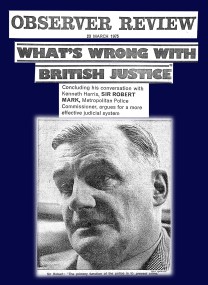 0
0What’s wrong with British justice
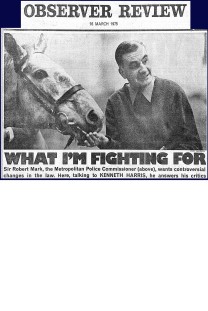 0
0The law – what im fighting for
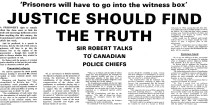 0
0Justice should find the truth
 0
0Shady Lawyers
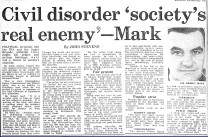 0
0Civil disorder – Society’s real enemy
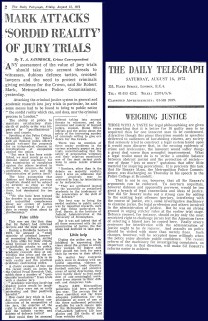 0
0Sordid reality of jury trials
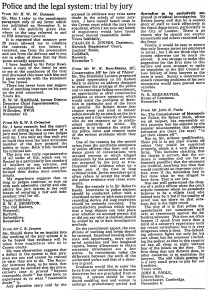 0
0Police and the legal system – Trial by jury
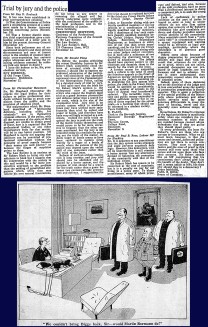 0
0Trial by jury and the police
- 0
The lawyers who harm society
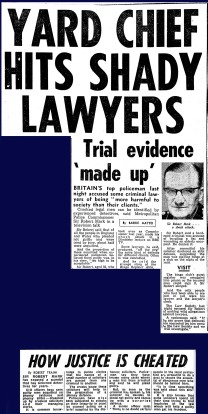 0
0Hitting out at ‘shady’ lawyers